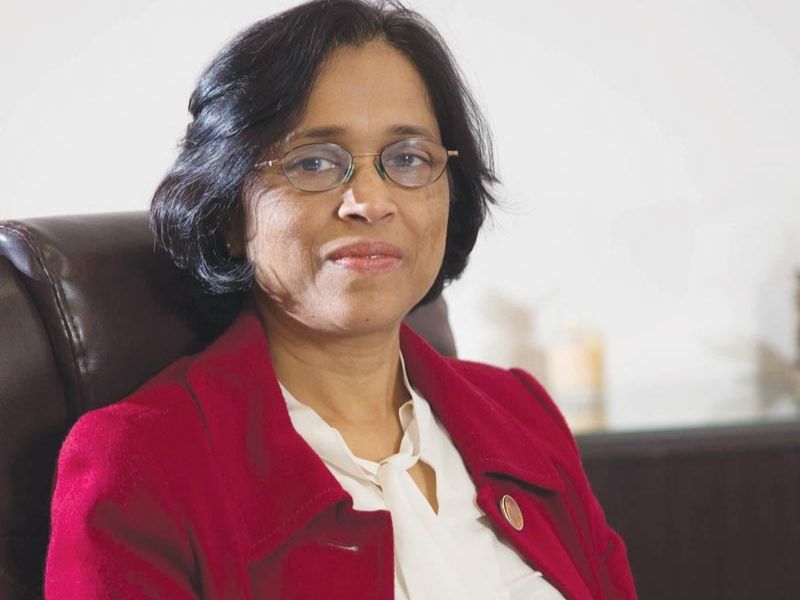Geeta Gandhi Kingdon President, City Montessori, Lucknow An alumna of Oxford University and the London School of Economics, Prof. Geeta Gandhi Kingdon is chair of education economics and international development, University College London. She is also president of the City Montessori School, Lucknow (CMS, estb.1959), certified as the world’s largest city school by Guinness World Records (57,000 students, 2,196 teachers in 17 campuses). The Covid-19 crisis has majorly disrupted the education system. How has City Montessori School responded to this challenge? In CMS, we introduced e-learning and online resources way back in 2012 when we bought Interactive White Boards for our 57,000 students in the school’s 17 campuses in Lucknow, gradually ramped up training our 2,100 teachers with basic computing skills to use Open Education Resources, create their own e-content, and use AI-based adaptive learning tools. Therefore, soon after the national lockdown was declared on March 24, our teachers were able to comfortably start using Google Classrooms, Google Meets, Hangouts and Zoom to engage directly with groups of students for interactive online classes. Several state governments have issued fees waiver/deferment circulars to private school managements. What’s your comment? The Uttar Pradesh state government has issued directions to private schools to defer the April, May and June fee for students whose parents are facing hardships during the lockdown period. But unfortunately many parents who are financially unaffected have not paid their children’s fees, despite teachers putting their hearts and soul into online learning. Consequently, a large number of schools are on the verge of closing down as they are unable to pay their teachers’ salaries and meet regular expenditure like water, electricity bills, AMCs, EMIs, etc. There should be a balanced approach on the part of government which should take the concerns of teachers and schools into account. Parents whose salaries/incomes are unaffected — government employees, farmers, health-industry workers, food, vegetable and fruit merchants, etc — should voluntarily step forward to pay their children’s fees so that the schools can pay teachers’ salaries. What are your Top 3 proposals for reviving and reforming K-12 education in India? Physical presence in schools is important because children learn a great deal from social interaction with peers. So ideally, schools should open but we don’t know when this pandemic will be over, so it’s an uncertain scenario. Till a vaccine is developed, schools should open cautiously with perhaps one-third strength i.e, with each student coming only one-third of the days (e.g, two days a week), with asynchronous learning time from home on the remaining two-thirds of the days (4 days a week). And on the days they are in school, it is important to strictly follow social distancing, sanitisation, hygiene and mask wearing. Children need to be supported in the ‘exit’ from this situation. Their anxiety will have to be handled with care and their well-being given top priority, and schools will have to be prepared for the fact that there will be stark variation between children in how effectively they have been able…
50 Leaders who can revive Indian education – Geeta Gandhi Kingdon
